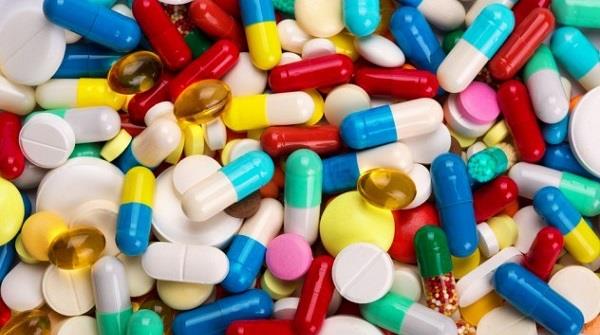Did you know that some medicines are not used for young children? For example, Aspirin, the drug commonly used for the common cold symptoms, is a promoter of Reye's syndrome, which causes vomiting, and narcosis due to severe brain and liver damage after 1- 2 weeks and it can even be fatal ...
Surely your house also has a medicine cabinet in case your baby gets sick suddenly, right? Be careful with the medicines you use for your baby, you cannot anticipate all the possible side effects of the medicine on your baby's health . Here are 10 dangerous drugs that you need to pay close attention to.
Aspirin
Unless you have a doctor's prescription, you should never give aspirin to your baby. In addition to being a cause of Reye syndrome, aspirin also causes many serious harms to baby's health such as stomach ulcers, blood clotting disorders, kidney damage, allergies ...
For non-prescription drugs, mothers should carefully check the ingredients of the drug to make sure they do not contain aspirin. The best mother should take the baby to the doctor if the baby shows signs of fever or discomfort.
>>> See also: How to give medicine to your child: Take the right medicine
Non-prescription drugs
According to experts, nonprescription drugs are also not recommended for young children. Many studies have shown that these drugs are not very effective when it comes to treating children's symptoms. In addition, they also have many side effects that, if used incorrectly, will endanger your baby's immature body.
Antiemetics
Many antiemetics contain antibiotics that are specialized for stomach disorders that have a serious effect on young children, causing tinnitus or dark stools due to gastrointestinal bleeding, and can lead to many problems. no other wishes anymore. So, if there is no prescription from a doctor, mothers should not arbitrarily buy antiemetics for babies to drink.
Medicines for adults
Every time you go to buy medicine, do you notice that the doctors always ask the age of the person who needs to take medicine? Depending on the age, the amount of medicine will be reduced to suit the condition. In particular, compared to the adult body, the baby's body is much smaller and more immature than us. So even if the medicine is very effective, you should never give your medicine to your baby! Your baby's relatively weak resistance may not be able to absorb the drug's effects.
Overdue medication
If the mother does not want to "fully catch" the adverse effects brought about by the denatured medicine, discarding the expired medicine bottles immediately is the right thing to do now. Medicines are inherently perishable, especially when they are not stored properly. Mom should not "regret" an outdated potion and keep it somewhere else.
>>> See more: Keep the family medicine cabinet safe
Prescription drugs for others
When doctors prescribe individually for each patient, they carefully consider the weight, body and treatment history of each person. A drug may be good for someone, but it will be disastrous for your child because there is simply no one like anyone and the doctor never prescribes it for your kid!
Tablets
>>> See more: Instructions on how to first aid when your baby chokes
For very young children, the pills can easily cause a baby to block their airways. So mothers must be careful when giving them these medicines, it is best to give them liquid medicines. If you have to give your baby pills, you can crush it and mix it with water for your baby to drink.

The pills are very easy to make your baby choke
Ipecac syrup
Ipecac is an emetic drug used in an emergency when a baby is poisoned . However, this medicine can cause your child to continue vomiting a lot after expelling the toxins from the body, causing severe dehydration in young children.
Anti-allergy medicine
If not prescribed, mothers should never give allergy medicine to children. Over-the-counter allergy medications with antihistamines have many side effects in young children.
Honey
Although not a medicine, honey is often used as a natural remedy. In honey there are spores that cause digestive poisoning, like in overdue canned meat. When young children drink honey, this poison can seep through the stomach and spread throughout the body. Mother should not give honey under 12 months old because it is easy to cause poisoning.
Always consult your doctor before giving any medicine to your baby, even if it is a medicine your mother has always given you to take. Technology will change over time to produce more medicines at lower costs. So you do not let children use things that you cannot understand, because they have many potential risks.












